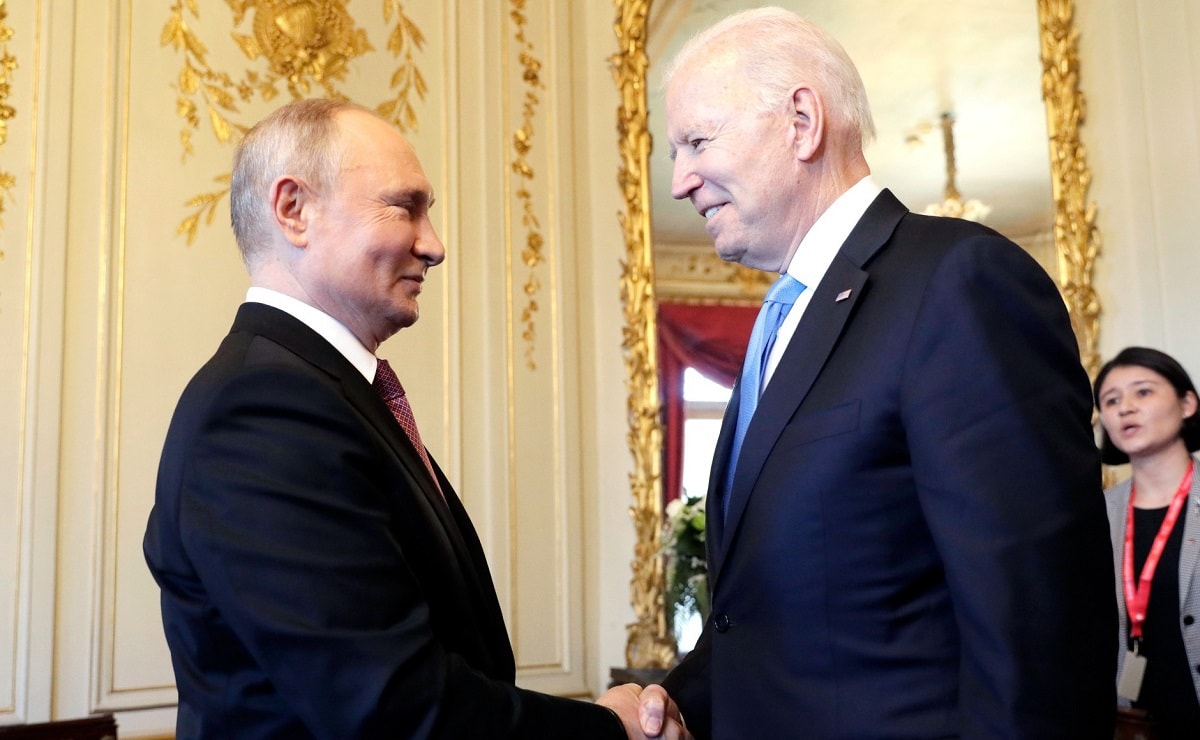White House Attempting to Avoid Biden-Putin Meeting At G-20 Summit: After White House press secretary Karine Jean-Pierre confirmed last week that President Joe Biden would not meet with Russian President Vladimir Putin at the upcoming G-20 summit, Politico reported on Wednesday that the White House is taking steps to ensure that the two men don’t cross paths at all.
Why Won’t Biden and Putin Meet?
Politico reported on Wednesday that the White House is taking “every step possible” to ensure that President Joe Biden does not encounter Russian President Vladimir Putin at the upcoming G-20 summit in Indonesia.
The news comes a week after White House press secretary Karine Jean-Pierre suggested that the president would not seek out a meeting with the Russian leader, even to discuss the controversial imprisonment of American basketball player Brittney Gringer.
According to Wednesday’s report, White House officials are working to ensure that the U.S. president doesn’t even encounter the Russian president in a hallway and that the two leaders do not appear in the same photograph together. That being said, the possibility of the two men attending the same plenary gathering could not be ruled out.
The G-20 summit is expected to begin in Bali on November 15 and end the day after. Leaders are expected to discuss efforts to resolve economic problems caused by the COVID-19 pandemic, as well as other world affairs. The Russian invasion of Ukraine is also expected to be a major topic of discussion throughout the summit, and while Western leaders will stress the importance of maintaining sanctions against Russia, Putin is likely to use the event to strengthen diplomatic ties with leaders like Indian Prime Minister Narendra Modi who are less averse to deepening economic ties with Russia.
Pressure to Oust Russia from Group of 20
In April this year, finance ministers and officials from the United Kingdom, Canada, and United States walked out of a G-20 meeting in protest of the Russian invasion of Ukraine and Russia’s participation in the event.
In a Twitter post, Rishi Sunak, who was the British chancellor of the exchequer at the time, said that he was showing a united front with his American and Canadian counterparts.
“We are united in our condemnation of Russia’s war against Ukraine and will push for stronger international coordination to punish Russia,” the post read.
Ukraine has made its position on Russia’s inclusion in G-20 summits, too. On Monday, Ukrainian presidential adviser Mykhailo Podolyak called for Russia to be expelled from the international grouping following a series of Russian drone strikes on Ukrainian cities.
“Those who give orders to attack critical infrastructure to freeze civilians and organize total mobilization to cover the frontline with corpses, cannot sit at the same table with leaders of G20 for sure. Time to put an end to Russian hypocrisy. The Russian Federation must be expelled from all platforms,” Podolyak said on Twitter.
There has been no indication so far, however, that Russia will be immediately expelled from the G-20 – and while Biden is not set to meet with the Russian leader at the summit next month, it could be an opportunity for Vladimir Putin to directly feel the effects of his war in Ukraine.
Worsening diplomatic relations with the West, along with new waves of sanctions, will only make his job harder as time goes by.
Jack Buckby is a British author, counter-extremism researcher, and journalist based in New York. Reporting on the U.K., Europe, and the U.S., he works to analyze and understand left-wing and right-wing radicalization, and reports on Western governments’ approaches to the pressing issues of today. His books and research papers explore these themes and propose pragmatic solutions to our increasingly polarized society.

